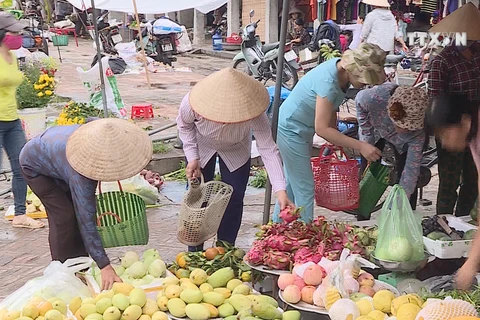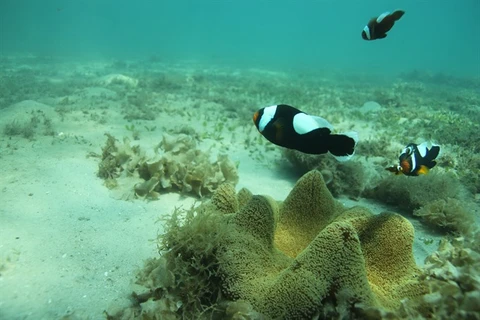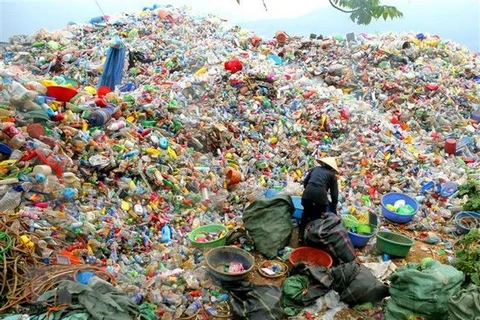 Officials show commitments at the launch of the national campaign to combat plastic pollution on October 12 (Photo: VNA)
Officials show commitments at the launch of the national campaign to combat plastic pollution on October 12 (Photo: VNA) Hanoi (VNA) – The Ministry of Natural Resources and Environment launched a campaign on October 12, calling for joint efforts in plastic waste prevention nationwide, in response to the 2018 “Make the world cleaner” campaign.
At the launching ceremony held in Hanoi, Minister of Natural Resources and Environment Tran Hong Ha urged agencies, organisations, and entrepreneurs of all levels to take action in the fight against plastic waste.
Pollution caused by plastic waste, especially ocean pollution, has become a global issue, he said, adding that reducing the use of plastic waste is an urgent task.
Businesses, supermarkets, and malls are recommended to use environmentally-friendly materials instead of plastic products. The minister also urged experts to enhance research on the development of bio-degradable and reusable products.
[Video: Hanoi young volunteers promote green habits]
Domestic agencies and international partners are advised to bolster cooperation and access on the management and treatment of plastic waste, as well as the development of new products.
In addition, the media should increase dissemination of plastic pollution risks to try and flip the switch on the popular habit of single-use plastics.
About 60 percent of plastic waste dumped into the sea around the world comes from six Asian countries, including Vietnam, said Kamal Malhotra, UN Resident Coordinator in Vietnam.
The use of disposable plastics and the limited waste treatment have worsened environmental contamination and community health.
Therefore, now is the time for collective actions to tackle one of the biggest global challenges, harnessing collaboration between the Government, businesses, and people, he noted.
He suggested the Government issue policies to halt the production and usage of single-use plastics, while the private sector ought to apply new business models to reduce the use of plastic waste, and the public should challenge their widespread consumption of disposable plastic goods. –VNA
VNA
























